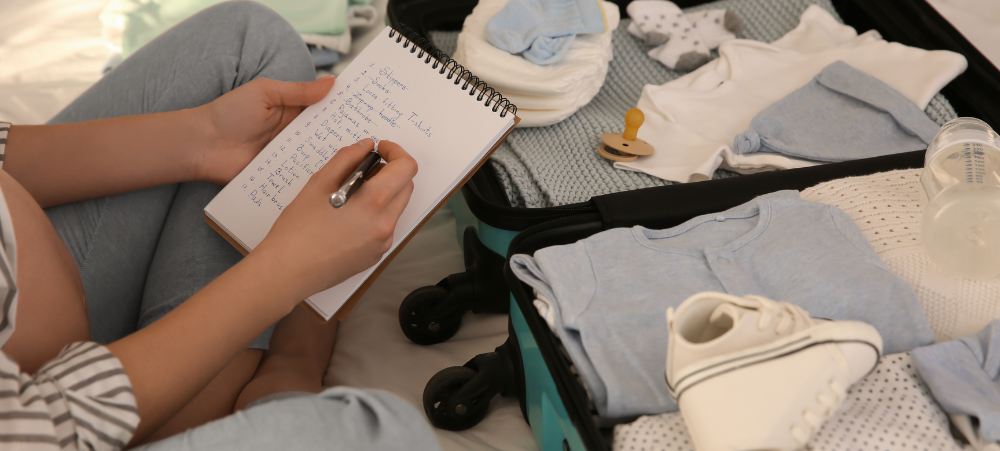At CryoSave we understand that becoming a parent comes with financial strain. That is why we offer flexible pricing options, structured to your needs.” as this will give an indication that even though there is so much benefit, CryoSave makes it easier in terms of cost.
Below is a breakdown and explanation of the costs of stem cell banking.
The collection kit
The collection kit includes everything your doctor/midwife will need for the collection. The collection kit is paid upfront when you sign up for stem cell banking. The reason this is paid upfront is to ensure that the kit can be couriered to you immediately to be available once the baby is born for the collection to take place and after completion the kit will be collected by a specialised courier.
Processing the collected samples
Once the samples (collection kit) are received by the CryoSave laboratory, the samples need to be processed. This means that the cord blood cells are separated. The cord blood and tissue are processed according to international standards. CryoSave is an internationally AABB (Association for the Advancement of Blood and Biotherapies) accredited facility. All cord blood samples are processed using internationally validated processing and cryopreservation protocols. The cord blood and tissue stem cells will be kept in a liquid nitrogen storage tank (between -196 and -150°C) at our secured facility for long-term storage.
In addition to the above, blood is also drawn from the mother at birth. The vials for these tests are also included in the kit. These samples will then be analysed by pathologists for infectious markers.
Stem cell banks must do quality checks on all samples and before freezing a representative sample is taken for quality testing. The number of blood-forming stem cells and the % viability of the cells present in each sample is measured. Other checks are done to determine the recovery of stem cells after processing. Stem cell banks must also test for microbiological infection in each sample. After successful storage, the parents are notified of the success of the cord blood and cord tissue processing and negative microbiology. Parents will also receive a certificate for both the cord blood and cord tissue for their records.
If difficulties are encountered during delivery that might have affected the collection of the cord blood or tissue, the Laboratory Director or Medical Director will call the gynaecologist to ascertain the reason for the problematic delivery. They will also contact the parents to inform them and discuss the collection with them.
If the sample is needed for an approved transplant, CryoSave offers parents free shipment of the samples to anywhere in the world where the transplant will take place. A sample will only be released if approval is provided by an approved transplant centre and after discussions and approval documentation has been signed by the transplant physician, the parents, and the cord blood bank.
Storage
After processing is complete the cord blood and tissue stem cells are cryopreserved and cryogenically stored in the vapour phase of cryogenic nitrogen freezing tanks at -196° C and maintained there until needed.
When you consider all these costs; running any cord blood bank is rather expensive. This includes the cost of running the liquid nitrogen facility, maintenance of equipment, regulatory-, compliance- and operational costs (including staff salary expenses). The storage fees paid over 20-30 years, is a critical element of cost as this is to ensure that the stem cell bank you banked your baby’s stem cells with, can safely and securely store your samples for the required time to come. Storage fees should therefore be a non-negotiable cost when it comes to this process.
Conclusion
In addition, the search for donor stem cells can take months for a life-threatening disease and can cost anything between R600k – R1m. If you bank with a private cord blood bank, the stem cells are immediately available.
Considering the above, the cost of R25 000 for the collection kit and processing fees, and storage fees less than R50 p/m should not seem expensive. Only the collection fee is paid upfront. Repayment terms are available.
At CryoSave we understand that becoming a parent comes with financial strain. That is why we offer flexible pricing options, structured to your needs.
Contact us today to get a personalized quote.
We understand that there are many aspects that encompass a Mother, Father or Child and strive toward providing resources and services that accommodates this.
Our content is aimed to inform and educate families on issues starting from pregnancy through to the challenges of the teen-age years.
- Say Hello to the Ultimate Holiday Brunch Bite - December 17, 2025
- Tiny Toons Looniversity Returns: Meet the Voice Behind Plucky and Hamton! - December 12, 2025
- From Pain to Possibility: Panado®’s New Marketing Campaign, Highlights The Joy Of Pain Relief - December 10, 2025





